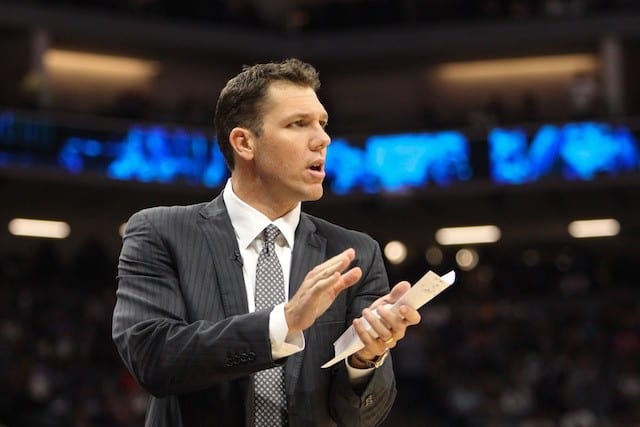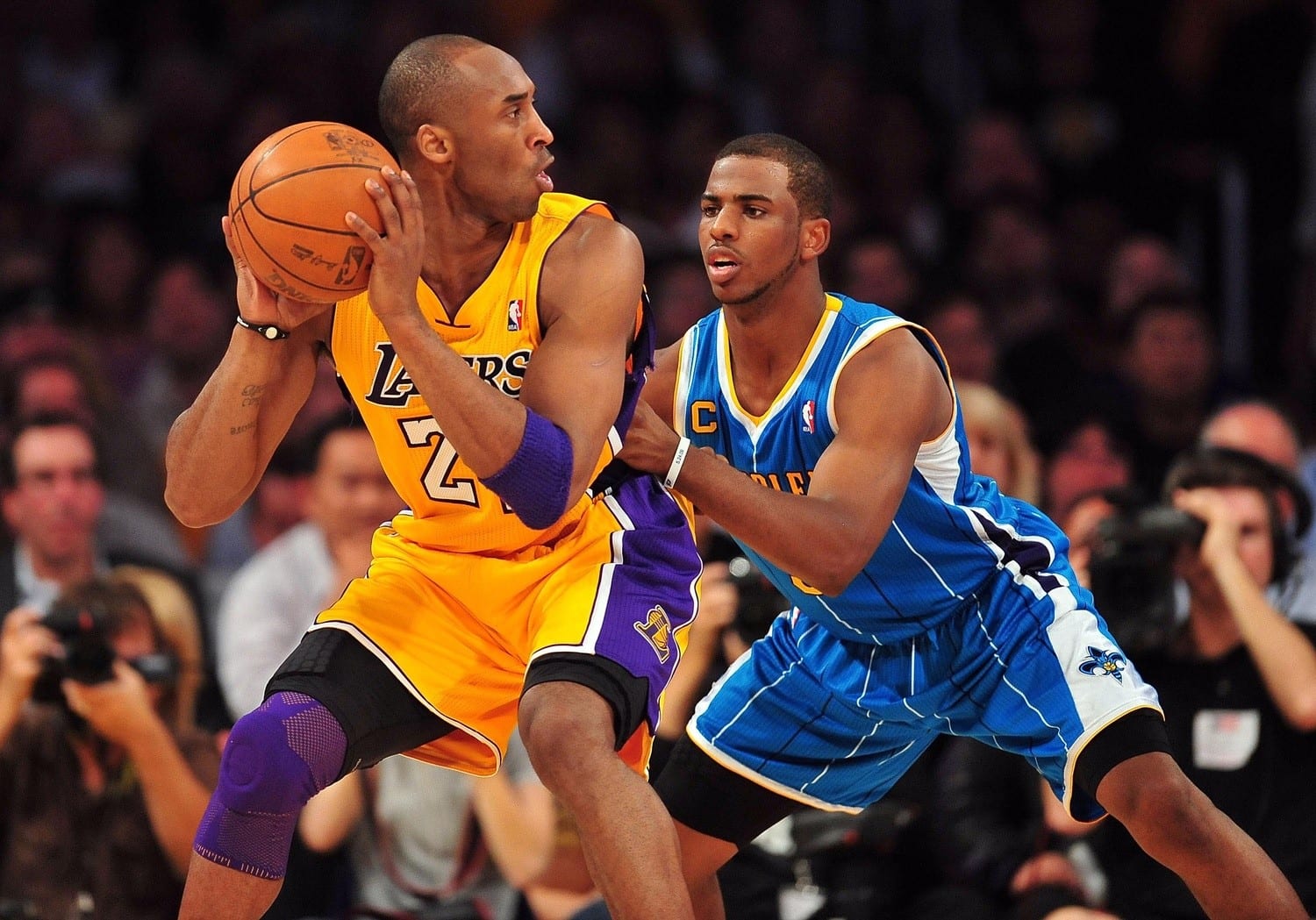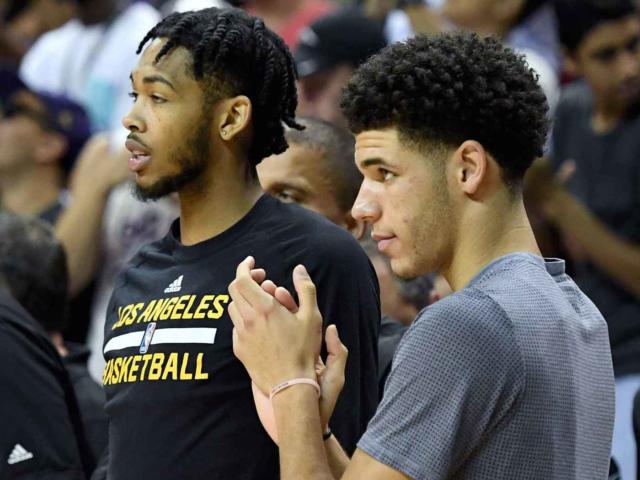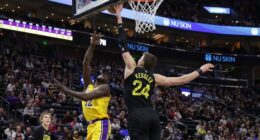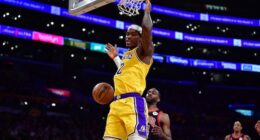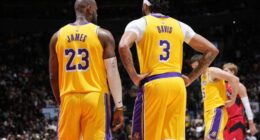The 2016-17 NBA season will be remembered as the moment the Los Angeles Lakers franchise hit rock bottom and started to dig its way out of the dark. Things were so bad that Jeanie Buss felt she could not wait until the offseason to clean house. To fire one’s brother, who had been entrusted by their father to run basketball operations, along with loyal general manager Mitch Kupchak and vice president of public relations John Black, is gut wrenching enough over the summer, but to do it mid-season was a sign of how bad things had become.
It was inevitable that this would be a period of transition. For the first time in 20 years, the team was without the brilliance of Kobe Bryant and the tenacity he brought to every game. When Bryant retired, it left the roster without a star and devoid of a leader. You don’t recover from such a loss overnight.
Still, the post-Bryant era started on a hopeful note. When the ping pong balls stopped bouncing last May, there was a sigh of relief when the Lakers retained the No. 2 pick in the draft and used it to select highly touted Brandon Ingram. He would join last year’s second overall pick, D’Angelo Russell, who was expected to make a big leap this year. Then, there was the hiring of the popular Luke Walton as head coach, which at the moment felt like redemption for all the free agents who spurned the team the past few years.
When, in November, the Lakers got off to a better than expected start to the season, fans were emboldened, and it looked like ESPN’s prediction that the team would win only 25 games was wrong. It was, but unfortunately, it was too optimistic. When the calendar turned the page to December, the bottom fell out, and the purple and gold has been in a death spiral ever since.
First, there was the growing list of injuries which robbed the team of its momentum and confidence. Then, the reality of the Timofey Mozgov and Luol Deng free agency signings started to sink in. Neither player was going to contribute much on a squad filled with young, inexperienced teammates who more than anything else needed playing time. Even worse, the bloated long-term contracts given to Deng and Mozgov would be an albatross for three more years.
The losses mounted, and nothing the coaching staff tried brought the team back to life. Ingram, like Russell the year before, did not seem ready for the NBA at age 19. Russell and Julius Randle played well one game and poorly for the next three. Larry Nance, Jr. kept getting hurt, and Jordan Clarkson lost his starting job and was uncomfortable playing in a second unit with the ball-dominant Lou Williams. Fans were intrigued with Ivica Zubac in Summer League, but he was buried in the D-League once the season began though he was no less ready for the NBA than was Ingram.
The coaching staff had its own struggles. From the moment training camp opened the emphasis was on defense, to absolutely no avail. The one constant during the regular season has been the team’s truly atrocious lack of ability to guard anyone. It has been equally bad on the perimeter, in the paint, and at the rim. Teams feast against the Lakers — even those squads at the bottom of the statistical heap regularly shoot better than 50 percent, put up 65-70 points in the first half, and 120-125 points for the game.
For far too long, the coaches stubbornly stayed with their decision to start three veterans, Mozgov, Deng, and Nick Young, in the theoretical possibility that it might lead to a few more wins, which it did not. Not a single member of the young core has averaged 30 minutes a game this season.
What hurt most, however, was losing over and over, both to good teams and bad, until players and fans became numb to it all. Repetitive losing is debilitating, emotionally and physically, and it results in a defeatist mindset that is hard to shake. There were stretches this year when the players’ body language at the start of games was so bad that it seemed like they didn’t want to play at all because they knew it would just be another embarrassing defeat.
With so many negatives, it is easy to forget that there were some good moments along the way. It is telling that the best moments for every young player occurred recently when each man showed something very special even if just for a night.
Russell just scored a career-high 40 points on 14-for-22 from the field and 7-for-12 from three-point range, in a game against the Cleveland Cavaliers on March 19. A few days before, Randle scored a career-high 32 points against the Houston Rockets on 13-for-17 from the field, and two days before that Zubac had 25 points and 11 rebounds against the Denver Nuggets. The day before, Clarkson scored a career-high 32 points to go along with eight assists against the Philadelphia 76ers.
Thus, in the span of one week from March 12 and March 19, Russell, Randle, Clarkson and Zubac all had career scoring nights. Two weeks before, on February 26, Ingram set his career high with 22 points on 10-15 shooting against the San Antonio Spurs. Nance had his best game of the season on Feb. 2 when he had 18 points, 11 rebounds, and four assists on the road in Boston.
What does it mean that in the past two months, all six members of the Lakers young core had career nights? For one thing, it means that each of these men, when at his best, is a very good NBA player. It also shows that each has grown and improved over the course of the season, even if this development has been obscured by the team’s constant losing.
Now that we know each member of the young core has good potential, the goal must be twofold. First, it is not enough that once in a while each man plays a great game. They need to learn to do it on a regular basis. Second, multiple players need to excel on the same night. Whenever one member of the roster goes off, it seems like the others sit around and watch.
It would be great if the Lakers could finish this trying year on a high note. No one is safe this summer, and whether they realize it or not, each player is auditioning for a spot on next year’s roster. It is likely that two more first-round picks will join the team, plus there are other young players with skills who were not mentioned above such as Tarik Black (25), Tyler Ennis (22), and David Nwaba (24).
There is no way the Lakers will go into next season with that much youth. A trade or two this summer is almost certain. What it means is, some of the young players will be back and others will not, and that could lead to major surprises. One thing is for sure – any young player who wants to return had better step it up right now.
